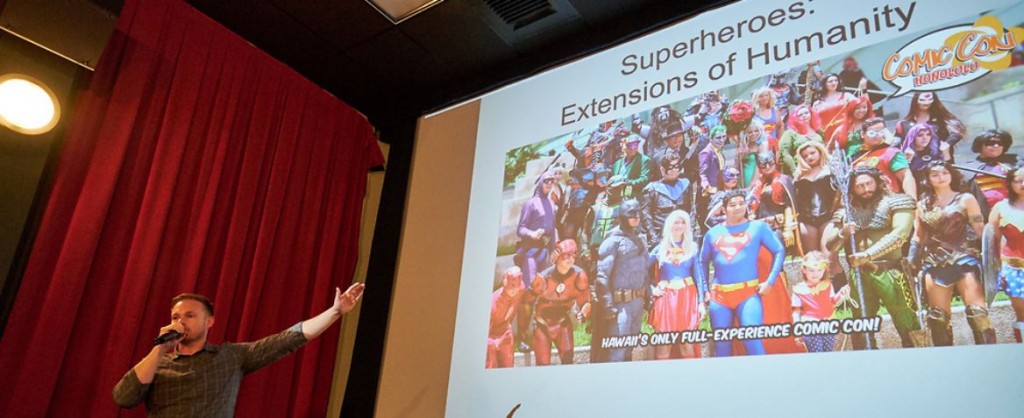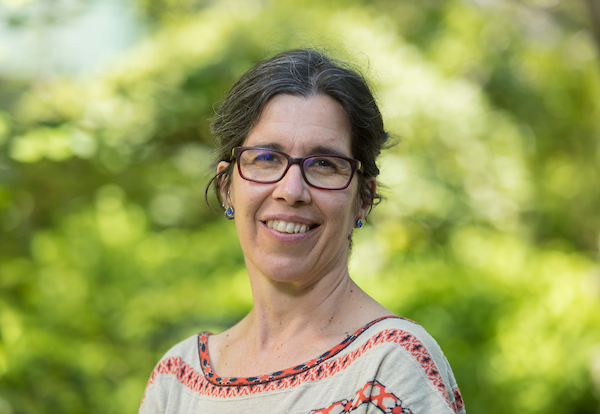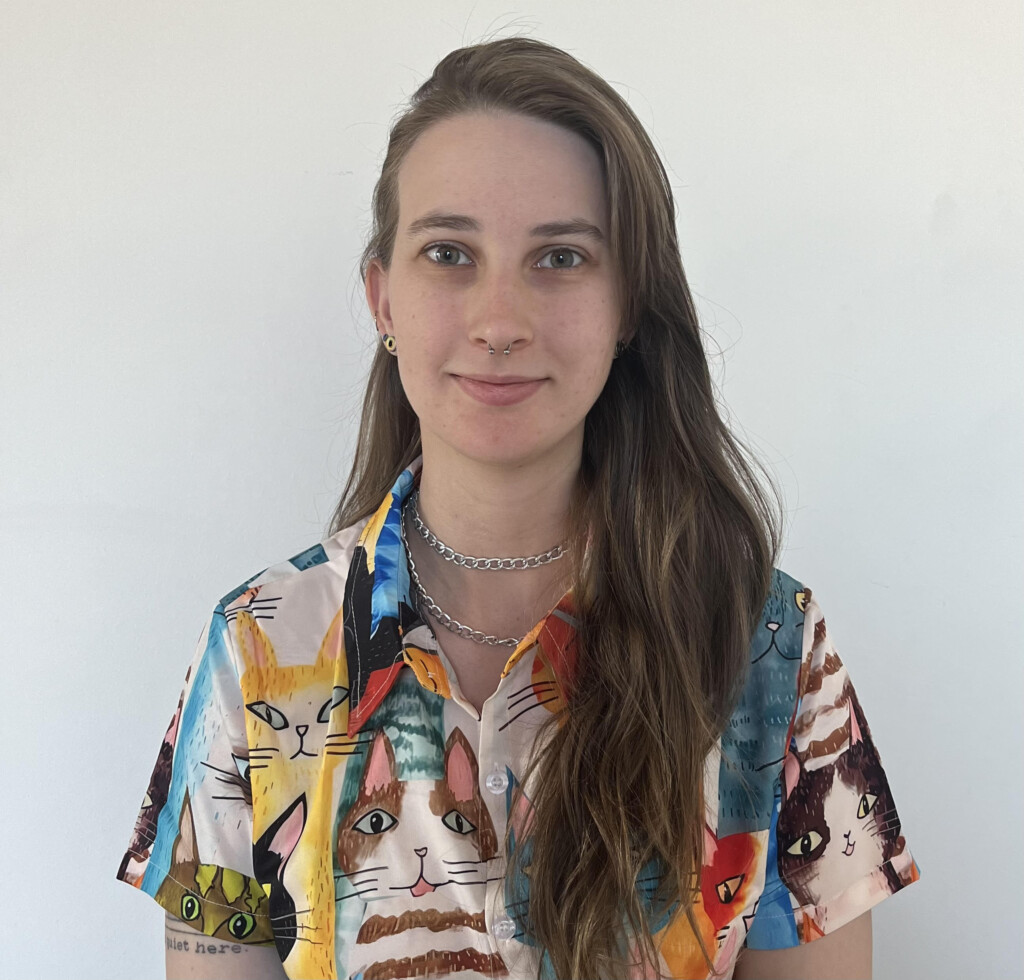Page 111 • (3,056 results in 0.049 seconds)
-

Science On Screen Posted by: Marcom Web Team / May 21, 2019 Image: Prof. Corey Cook, of PLU’s Dept. of Psychology, curated “Science on Screen” at the Grand Cinema on Monday, May 20, 2019. May 21, 2019 By Jeannette ShimkoCommunications Coordinator, Division of Social SciencesTACOMA, Wash. - Science on ScreenProf. Corey Cook, of PLU’s Dept. of Psychology, curated “Science on Screen” at the Grand Cinema on Monday, May 20, 2019. SCIENCE ON SCREEN Science on Screen®, originally started by Coolidge
-
miss our graduates, with whom we develop close relationships over four intense years, but not as much as we admire the diverse paths they forge for themselves after leaving us. Allez les Lutes! If you are a French major or minor alumnus reading this, please drop us a line (wilkinrm@plu.edu) and tell us the story of your post-PLU path!What are some Hispanic Studies alumni doing post-graduation? From Jenae Poe: PLU’s emphasis on social justice, global perspectives and sustainability greatly impacted
-

Act Six scholar finds “automatic community” at PLU Posted by: vcraker / January 5, 2021 January 5, 2021 As a first-generation college student, Georjina Soliai ’23 of Lakewood, Washington wasn’t certain how she would be able to afford college. While going through the college admissions process she learned about the Act Six Scholarship. Act Six is a leadership program that connects local community affiliates with faith- and social justice-based colleges to equip emerging urban and community
-

Mathematics Education Math and Social Justice Books Reflecting the World: A Guide to Incorporating Equity in Mathematics Teacher Education co-authored with Mathew D. Felton-Koestler and José María Menéndez ( Information Age Publishing, Inc. 2017) : View Book Selected Presentations 61st Northwest Math Conference, What can data tell us about racial disparities in school discipline?, Tacoma, WA. (October 2022) Twenty Sixth Annual Conference of the Association of Mathematics Teacher Educators, Using the
-
Why Study Criminal Justice?As a student of criminal justice at Pacific Lutheran University, you will investigate theories of criminal offending, the functioning of the criminal justice system, and the experiences of crime victims. Our sociologically-informed criminal justice program emphasizes an understanding of the social and structural contexts in which crime and criminal justice system take place.Why Study Criminal Justice at PLU? Complete an internship with a criminal justice agency
-
Diversity, Justice, and Sustainability (DJS)/Civic EngagementDiversity, Justice, and Sustainability (DJS)/Civic Engagement Clubs and Organizations seek to create a safe, supportive, and diverse environment that challenges students to explore social justice issues and begin the work towards equity as engaged citizens on both local and global levels. These clubs and organizations are great for students that are interested in gaining an increased understanding of their cultural identities through
-
would like to thank Professor Christian Gerzso, Dr. Michael Artime, Priscilla St. Clair, and Rebecca Wilkin for their mentorship and commitment to my studies throughout my time at PLU. Special recognition must be given to the phenomenal Beth Kraig, who played a large advisory role in the cultivation of this capstone project, and in doing so has helped me illuminate my life’s next pursuit. Thank you all, words cannot describe my gratitude. The Global Studies program has given me the tools to live
-

Perspectives into Legible Factory Robot Light Communications,”." Transactions on Human-Robot Interaction Vol. 12 (1), February, 2023: pp. 1-33.. Bacula, Alexandra, Heather Knight. "“MoTiS Parameters for Expressive Multi-Robot Systems: Relative Motion, Timing, and Spacing."." International Journal of Social Robotics Vol. 14 (9),, November, 2022: pp. 1965-1993. Bacula, Alexandra, Amy LaViers.. " "Character Synthesis of Ballet Archetypes on Robots Using Laban Movement Analysis: Comparison Between a Humanoid
-
variety of plans. The monthly cost of maintaining a cell phone is around $50.00. International students who do not have a social security number can purchase a pre-paid cell phone without a social security number. Most carriers require international students to put down deposits of $200.00 or more when signing up for a plan. The deposit is generally fully refundable after certain period of time, usually about 1 year. Your account needs to be in good standing to receive the deposit back. Following is
-

StilesChloe WilhelmDanielle Lisk``The Impact of Presidential Campaign Visits on Election Outcomes``PresentationAlec Miller``Localization of the agri-food industry a solution?``PresentationSierra Miller``District 26: Using Data to Create a Campaign Strategy``PresentationAndrew Northam``The Potential Political Effects of Biased Teaching in Social Studies and History``PresentationKeon Payne & Logan Berghoefer``Electronic Voting Methods``PresentationAaron Ristau``Capstone: Environmental Lobbying
Do you have any feedback for us? If so, feel free to use our Feedback Form.


